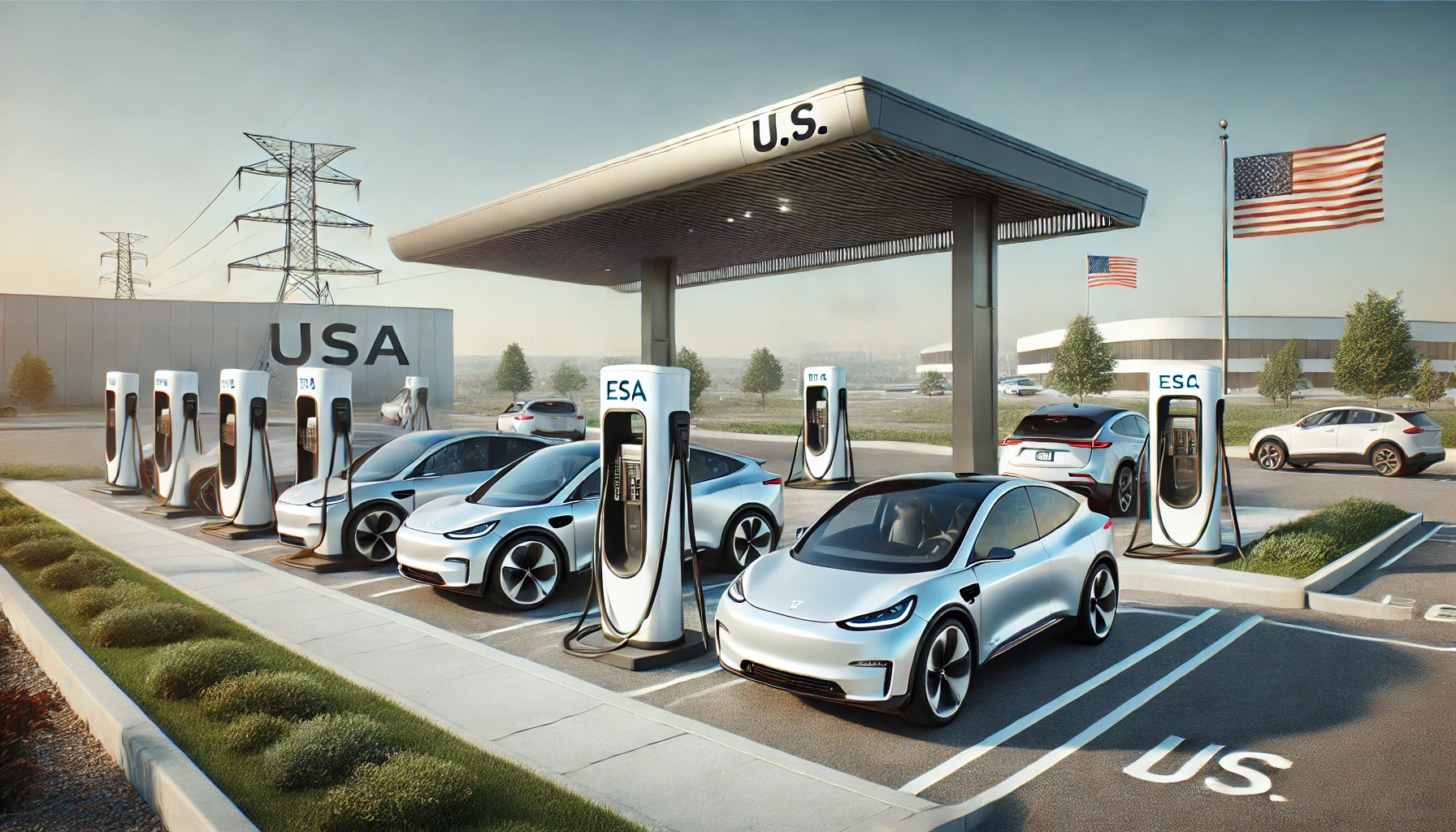The Pros and Cons of Electric Vehicles in the USA
Electric vehicles (EVs) have gained significant popularity in the USA over the past decade. As consumers become more environmentally conscious and governments push for sustainable alternatives, the demand for EVs continues to grow. However, while EVs offer many benefits, they also present some challenges. Here’s an in-depth look at the pros and cons of electric vehicles in the USA.
Pros of Electric Vehicles in the USA
- Environmental Benefits
- Reduced Emissions: EVs produce zero tailpipe emissions, which helps reduce air pollution and decrease greenhouse gas emissions, especially in urban areas.
- Reduced Dependency on Fossil Fuels: Since EVs are powered by electricity rather than gasoline or diesel, they reduce dependency on fossil fuels, supporting the transition to cleaner energy sources.
- Lower Operating Costs
- Cheaper Fuel Costs: Electricity is typically cheaper than gasoline, making EVs more cost-effective to operate.
- Lower Maintenance: EVs have fewer moving parts than internal combustion engine (ICE) vehicles, which often results in lower maintenance costs. There’s no need for oil changes, fewer repairs on the engine, and brake wear is minimized due to regenerative braking.
- Government Incentives
- Federal and State Tax Credits: The federal government offers tax credits of up to $7,500 for qualifying EVs, and some states provide additional incentives like rebates and reduced registration fees.
- HOV Lane Access: Many states allow EVs to use high-occupancy vehicle (HOV) lanes, even with a single occupant, which can save time for commuters.
- Enhanced Driving Experience
- Quieter Ride: EVs are quieter than traditional vehicles, leading to less noise pollution and a more peaceful driving experience.
- Instant Torque: Electric motors provide instant torque, resulting in faster acceleration and a smooth, responsive drive.
- Technological Advancements
- Advanced Features: EVs are often equipped with the latest technology, such as autonomous driving capabilities, extensive driver-assist systems, and advanced infotainment options.
- Home Charging Convenience: For many owners, charging an EV at home can be more convenient than fueling up at a gas station.
Cons of Electric Vehicles in the USA
- Higher Upfront Costs
- Purchase Price: While EV prices are gradually decreasing, they are still generally more expensive than gasoline vehicles due to the high cost of battery production.
- Limited Second-Hand Market: The second-hand EV market is still developing, making it harder for consumers on a budget to find affordable used EVs.
- Range Limitations and Charging Infrastructure
- Range Anxiety: Although some EVs can travel over 300 miles on a single charge, range anxiety is still a common concern, especially for those who frequently travel long distances.
- Charging Infrastructure: The U.S. charging infrastructure, although growing, is not as widespread as gas stations. Rural areas especially may have limited charging options, which can be inconvenient for long trips.
- Long Charging Times
- Slower Charging Compared to Refueling: Even with fast chargers, charging an EV takes longer than filling up a gas tank. While home charging can mitigate this, it’s still a challenge on longer trips.
- Battery Degradation Over Time: Just like any battery, EV batteries degrade over time, which can reduce the vehicle’s range and require expensive battery replacements after several years.
- Environmental Impact of Battery Production
- Mining for Battery Materials: The production of EV batteries requires materials like lithium, cobalt, and nickel, which often involve environmentally harmful mining practices.
- Battery Disposal and Recycling: Battery recycling is still a developing industry. Without proper disposal and recycling systems in place, batteries can contribute to environmental pollution.
- Performance in Extreme Weather
- Cold Weather Challenges: EV range can drop significantly in cold weather due to increased energy consumption for heating and battery inefficiencies.
- Heat-Related Battery Degradation: Extreme heat can also affect battery performance, potentially shortening the battery’s lifespan.
Conclusion
Electric vehicles offer a promising alternative to traditional gasoline-powered cars, especially for environmentally conscious consumers in the U.S. who drive primarily in urban areas with ample access to charging. While EVs have the advantage of lower emissions, cheaper operating costs, and government incentives, they come with challenges like higher upfront costs, limited charging infrastructure, and environmental concerns related to battery production. For prospective EV buyers, weighing these pros and cons in light of personal needs and local infrastructure can help determine if an electric vehicle is the right choice.







